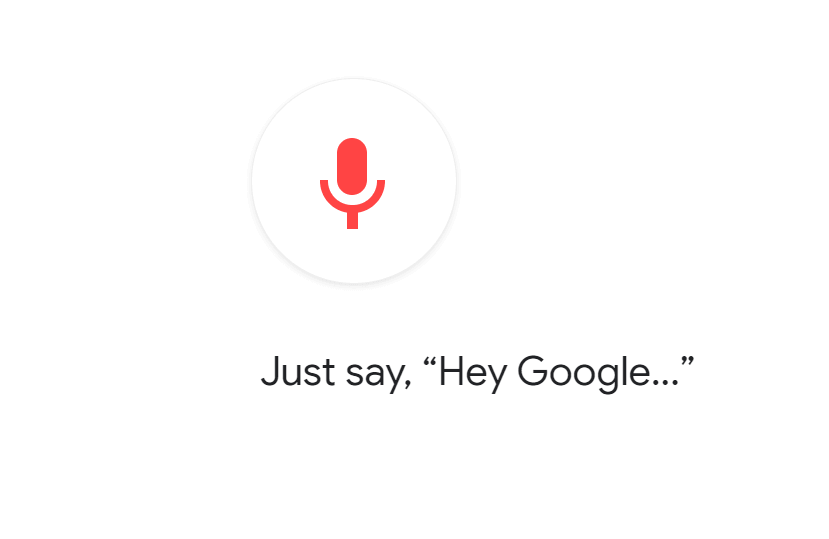Theo J. Bressett
Updated 22/10/2024

Contents
Voice search is a quickly expanding area of mobile technology. This new approach to the traditional internet search can have a huge influence over the amount of times a site comes up in search engine results, and the volume of search traffic directed towards it. The adaptability and upward mobility of this phenomenon shows no signs of slowing. You need to be prepared on your website, and in your video marketing.

The recent findings on voice-based search
According to a recent edition of the Internet Trends Report, voice search queries have exploded. The volume of voice initiated searches has grown 35-fold since the feature was first allowed with the iPhone and the Google Voice Search features. Digital assistants like Apple’s Siri and Microsoft’s Cortana are receiving more traffic year after year.
To lead the way, both are getting big updates to strengthen their functionality and the success of their query results and feedback. Another change being made to voice assisted search is enabling them to handle long tail keywords, and even complete sentence search queries, as opposed to the typical 2-4 word searches of the past.
The effects that voice searching through mobile devices has on content creation is widespread. It crosses many different niches, and video content will be no exception to this trend. Despite the overwhelming draw and visual appeal of the video format, it still depends heavily on text to drive organic traffic and SEO relevance.
For example, someone still has to input search terms in order to find videos as they cannot be called upon their own without some sort of input. Videos allow people to see a visual representation of their verbal or text based queries. Beyond this, video presents a number of key advantages as it deals with the new trend of voice search. Certain qualities of videos go a long way in helping ensure the results are ones the user enjoys.
While the draw and appeal of voice search options grows and expands, it is important for all video creators to adapt their strategies. You must make the most of this powerful and ever-growing marketing tool for online digital searches. The number of your viewers who will use long keyword phrases is only going to increase.
The implications voice search has on content
Many changes are on the horizon thanks to voice searches, and many of these changes are being brought to online content results. They will affect all access points and input points equally. As the number of search queries that are originating from voice search input devices and channels continue to grow, the SEO rules you are currently using online must evolve or die.
In normal text based searches online through search engines like Google and Bing, someone would type in ‘current weather in Seattle’ to check the weather for Seattle. Anything with that phrase would show up as a result. However, with voice searching, the queries are worded in a more conversational and natural way such as “what is the weather like in Seattle today.”
So websites, weather apps, and other services need to be more mindful of this new phrasing and keyword swing so they can include them in their content and increase the chances of them showing on search results. SEO will need to be more focused on long tail or phrase keywords and will also need to focus on different trigger keywords for voice searches than they would for traditional web searches.
Need for speed and accuracy with results
Meanwhile, the patterned advance of internet searches is also changing and making a shift towards a more voice driven approach to web searches and data requests. Search Engine Watch recently pointed out that most user’s voice searches are not going with basic keyword searches.
They are instead opting for more highly detailed searches that are specific to their needs, location, or other very specific factors. Instead of ‘pet groomers’ being their search term, they are instead making searches more in line with “skilled groomer in Seattle with experience working on Siberian Huskies.”
Voice search users are generally very verbose, much more-so than people who type in queries in the traditional web search method. This shift can be both good and bad: It makes general target keywords harder to show in search engines, but it will also enable new keyword focuses to be found and can offer much more targeted results for the users.
Searching the way we talk is a big change from traditional web searching in an input box. But it is a trend that is quickly taking hold and becoming more and more the norm than the exception in today’s market.
There is another side to the voice-based searches that also needs to be considered and that is the nature of voice search itself. You can learn some interesting things about voice users and see some behavioral trends present among those opting for Siri or Cortana assisted searches.
Voice search users tend to largely be of the active individual type and are on-the-go searchers. These individuals want information quickly and do not have time for typing, scrolling, and sifting through results. They need, no, demand accurate and quick results that fit their specific and unique needs.
They also want results that are short and to the point. They are usually not looking for 700 word blog posts but the smaller mini posts and bullet list articles that they can quickly scan and read for the information they need. There is no time in the voice search user’s day for a lot of reading to get the nugget they are looking for.
In fact, this busy on the go, high demand approach to life is largely why they turn to voice search in the first place—it gives them the search option they need, without tying them down, slowing them down, or getting in the way of the busy life they are leading.
And this is what web contend developers have to realize- that the old methods of keywords and optimization can still work, but the focus needs to shift somewhat to accommodate the voice search approach to getting internet search results.
Challenges and advantages that come with video

Video platforms may seem like one of the hardest advertising and marketing platforms to tailor towards voice-enabled searches since the normal method of tagging videos with a few short key phrases for search results contrasts with voice-search using long tail keywords. In reality it can be one of the most successful platforms for voice search so long as you are willing to put in the additional effort.
Video shares one strong common tie already to voice command searching- it is largely based on the power of spoken words. Videos use spoken words to communicate the message, just as the new trend in searching uses spoken words to explore the world wide web.
What this similarity means is that marketers can learn from the natural language styles of their videos and adjust that to mimic the speaking styles users would be using in their search queries.
They can also use the same long tailed search words in the descriptions and tagging areas of the video to increase its targeting power. To incorporate it even more, you can use potential search phrases in the videos themselves. In fact, video applications and platforms can be specifically designed so that they answer the questions which are most likely to be represented by a voice-based search query.
The biggest risk is, of course, that:
- People will be lazy or frightened by this new trend.
- That marketers won’t take the important steps they need to cater to this new search method.
- That they will adjust the marketing side of things but ignore the need to change their SEO approach.
The fundamental SEO text that is used in supporting any video has to work along with both the content of the video and the activity of voice search users.
Without these critical changes, the video’s intended audience will not be likely to find it. Long tailed keywords are the future of SEO. It will likely be among the greatest learning curves faced by marketers and business owners as long tail keyword use for voice based search is not something which can be learned overnight.
Adapt, survive, thrive
Video creators are among the lucky ones in the SEO world. Voice search habits reflect the natural form of conversation and mimic many of the same phrases that are used in videos in the first place. Online videos that combine both natural conversational tone and phrases, along with SEO and long tail keywords, are the most effective at keeping voice searchers in mind.
Where text-based content will need a good bit of work to adjust for long tail search words, videos will not need much work aside from their descriptions and tags. They should also be much easier to fit long tail keywords into during the actual creation process.
With short web content being what voice search users are generally after, creators can turn videos into smaller mini video blogs. Each of these more focused videos will speak directly to a question, idea, or area of interest, and will offer the information a user is searching for quickly and easily. They will then be perfect for embedding in text based content on the same topic. Make them all work together by using:
- A strong meta description
- Long tail keywords
- Focused titles
- Image and video tags
The targeting of these shorter articles will be greatly improved thanks to the video. The embedding, and SEO work on the text based content, will also help the videos show up in front of their intended audiences.
Concluding thoughts
Here’s what you need to take away from this article and start working on with your video marketing and SEO:
- Websites, blogs, and videos need to be tailored for long tail keyword searches.
- Marketers need to work to emphasize their local SEO footprints for detailed voice searches.
- Older content needs to be revitalized to be applicable to voice-based searches.
- Anywhere videos are posted the content needs to be tailored for long tail search words.
- Businesses can develop strategies to make these adjustments and still make traditional content.
- Video might be a great starting point for a new brand or company just starting online.
- Voice-enabled searches is the future that is fast approaching and you have to be prepared.

Comments